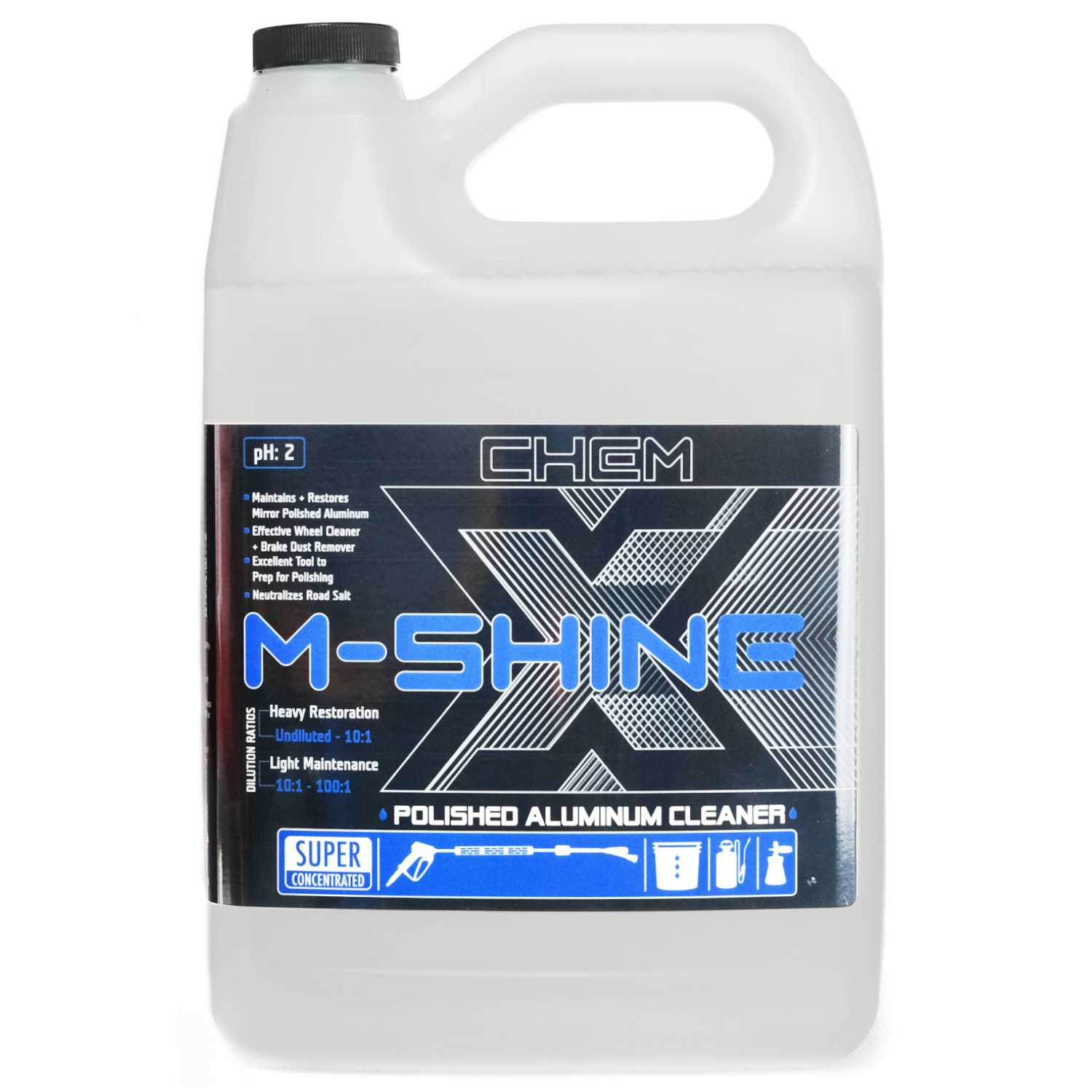Brake Cleaner on Aluminum is It Ok
Brake cleaner on aluminum is safe if used carefully to avoid potential damage. Aluminum is a versatile metal known for its lightweight and corrosion-resistant properties.
When it comes to using brake cleaner on aluminum surfaces, it is important to proceed with caution. While brake cleaner can effectively remove dirt, grime, and debris from aluminum, certain types of brake cleaners containing harsh chemicals can potentially cause damage to the metal.
To ensure the safety of your aluminum components, always choose a brake cleaner specifically designed for use on aluminum surfaces. By following manufacturer guidelines and testing in a small inconspicuous area first, you can effectively clean your aluminum parts without risking any potential harm.

Credit: www.amazon.com
What Is Brake Cleaner?
Brake cleaner is a solvent-based cleaning agent used to remove dirt, grime, brake dust, and other contaminants from various components of a vehicle’s braking system.
Composition And Use
Brake cleaner is typically composed of a blend of powerful solvents such as acetone, methyl ethyl ketone (MEK), and toluene, which effectively dissolve and dislodge stubborn residues from brake parts. It evaporates quickly, leaving no residue behind, making it ideal for cleaning metal surfaces.
Types Of Brake Cleaner
- VOC-compliant: These brake cleaners meet the regulations for volatile organic compounds and are considered environmentally friendly.
- Non-chlorinated: These formulations eliminate the use of chlorinated solvents, making them safer for use on aluminum and other sensitive materials.
- Aerosol vs. Non-Aerosol: Brake cleaners are available in both aerosol spray cans and non-aerosol pump spray bottles, offering convenience and versatility in application.
Compatibility With Aluminum
Potential Risks
Using brake cleaner on aluminum can lead to potential risks due to the harsh chemicals involved.
Factors To Consider
When considering the use of brake cleaner on aluminum, there are several factors to keep in mind.
Effects Of Brake Cleaner On Aluminum
Brake cleaner is a common product used for cleaning automotive parts, including aluminum surfaces. It’s essential to understand how brake cleaner interacts with aluminum to prevent any potential damage.
Chemical Reaction
- Brake cleaner contains harsh chemicals like acetone and methyl acetate.
- When applied to aluminum, these chemicals can strip away grime and grease.
Corrosion Potential
- Aluminum is prone to corrosion if exposed to certain chemicals.
- Brake cleaner can potentially cause corrosion if left on aluminum for extended periods.

Credit: www.chem-x.com
Best Practices For Cleaning Aluminum With Brake Cleaner
Best Practices for Cleaning Aluminum with Brake Cleaner
Precautions To Take
Before using brake cleaner on aluminum, there are several precautions to keep in mind. Acetone-based brake cleaners can weaken the protective oxide layer on aluminum, causing potential damage. It is crucial to ensure the aluminum surface is cool to the touch and away from any open flames or sparks to avoid fire hazards. Always wear protective gloves and a mask to prevent skin and respiratory irritation. Additionally, work in a well-ventilated area to minimize inhalation of fumes.
Proper Application
When using brake cleaner to clean aluminum, proper application is essential. Start by spraying the brake cleaner onto the aluminum surface, holding the can approximately six to eight inches away. Use a soft-bristled brush or clean rag to gently scrub the surface, removing any grime or dirt. Avoid excessive scrubbing, as it may lead to surface damage. Once the cleaning process is complete, thoroughly rinse the aluminum with water to remove any remaining residue.
Alternative Cleaning Methods For Aluminum
When it comes to cleaning aluminum, many people reach for brake cleaner as a quick and effective solution. However, using brake cleaner on aluminum can have some downsides, including the potential for damage to the metal’s surface. Fortunately, there are alternative cleaning methods that are safer and equally effective for maintaining the shine and cleanliness of your aluminum surfaces.
Safer Alternatives
If you’re concerned about the potential negative effects of brake cleaner on aluminum, there are several safe alternatives you can try. These alternatives are not only gentle on aluminum but also environmentally-friendly:
- Vinegar: Dilute white vinegar with water and apply it to the aluminum surface using a soft cloth. Vinegar is a natural cleanser that helps remove dirt and grime.
- Baking Soda: Create a paste by mixing baking soda with water and gently scrub the aluminum surface. Baking soda is a mild abrasive that can effectively remove stains without scratching the aluminum.
- Lemon Juice: Squeeze fresh lemon juice onto the aluminum and let it sit for a few minutes. Then, wipe the surface with a soft cloth to remove dirt and stains. Lemon juice contains citric acid, which helps break down grime.
Effective Cleaning Techniques
Regardless of the cleaning method you choose, there are a few key techniques that can help ensure effective cleaning of your aluminum surfaces:
- Gentle Scrubbing: Avoid using harsh brushes or abrasive materials that can scratch the aluminum surface. Instead, opt for soft cloths or non-abrasive scrubbing pads to gently clean the metal.
- Rinsing: After applying the cleaner, make sure to thoroughly rinse the aluminum surface with water to remove any residue. This will help prevent any potential damage or discoloration.
- Drying: To maintain the shine and prevent water spots, dry the aluminum surface with a clean, soft cloth after rinsing. This step is particularly important if you live in an area with hard water.
By using these alternative cleaning methods and following these effective techniques, you can ensure that your aluminum surfaces stay clean and shiny, without the risk of damage that may come with using brake cleaner.

Credit: www.amazon.com
Frequently Asked Questions Of Brake Cleaner On Aluminum Is It Ok
Does Brake Cleaner Harm Aluminum?
Brake cleaner does not harm aluminum. It is safe to use on aluminum surfaces without causing damage.
What Cleaner Is Safe On Aluminum?
A mild dish soap and water are safe for cleaning aluminum. Avoid harsh abrasives.
What Should You Not Use Brake Cleaner On?
Avoid using brake cleaner on plastics, painted surfaces, rubber components, and electrical connections. It can cause damage to these materials.
Can I Use Brake Cleaner To Clean Aluminum Before Welding?
Yes, you can use brake cleaner to clean aluminum before welding for removing oils and contaminants.
Is Brake Cleaner Safe To Use On Aluminum?
Brake cleaner is generally safe to use on aluminum surfaces, but it’s important to choose a cleaner specifically labeled as safe for use on aluminum.
Can Brake Cleaner Damage Aluminum Wheels?
Brake cleaner can potentially damage the finish on aluminum wheels, so it’s recommended to use a cleaner specifically formulated for aluminum surfaces.
How Do I Clean Brake Dust Off Aluminum Wheels?
To clean brake dust off aluminum wheels, use a mild cleaner specifically designed for aluminum surfaces and a soft brush or cloth to gently scrub the wheels.
Conclusion
Brake cleaner can be safely used on aluminum surfaces with caution. It is crucial to follow manufacturer’s recommendations and perform a patch test on a small area before full application. Proper precautions can help prevent any potential damage to the aluminum while effectively removing contaminants.
Always prioritize safety and best practices when using brake cleaner on aluminum surfaces.

